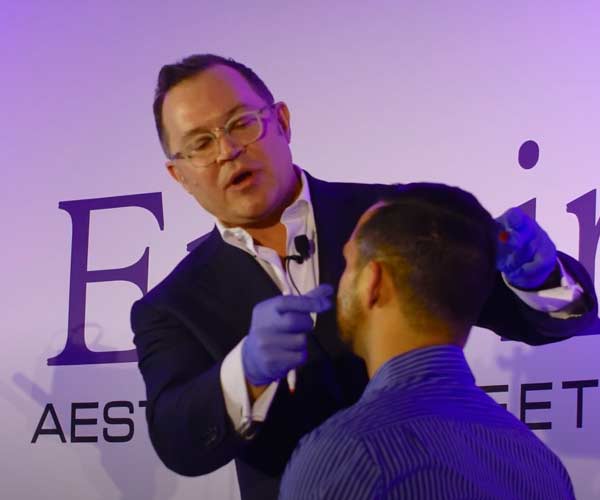Who Can Perform Laser Lipo?
By Dr. Stephen Cosentino
PRESIDENT OF EMPIRE MEDICAL TRAINING
Laser liposuction, or laser lipo, is a minor surgical procedure for removing fat from the body. Unlike traditional liposuction, laser lipo uses powerful, targeted laser pulses to melt unwanted fat deposits before they’re removed.
Laser liposuction is a more efficient and targeted approach to fat removal than traditional lipo. However, like any cosmetic surgery procedure, it’s best performed by licensed providers with extensive training and experience. Not just anyone can perform laser lipo.
Keep reading to learn who can perform laser lipo, the benefits of adding this cosmetic procedure to your practice, potential risks, and what to expect from laser lipo training.
Who Can Perform Laser Lipo?
Laser lipo is a minor surgical procedure that demands precision and care. Most states restrict it to active medical and osteopathic doctors, including board-certified plastic surgeons operating licensed plastic surgery practices and medical spas. State laws vary on whether dentists, oral surgeons, physician’s assistants, nurse practitioners, and registered nurses may perform laser lipo.
Licensed aestheticians generally aren’t authorized to perform laser lipo or any other laser treatments. However, those with proper cosmetic laser training may be permitted to assist authorized providers during laser treatment procedures.
Laser Lipo: Benefits and Risks
When performed safely and effectively, laser lipo is an excellent addition to any aesthetic practice. But before you invest in laser lipo training, consider both the benefits and risks.
Benefits of Adding Laser Lipo to Your Aesthetic Practice
Laser lipo’s benefits include:
- Faster recovery time than general surgery. Although laser lipo is a surgical procedure, it’s not as invasive as general surgery. Assuming no complications, patients recover more quickly and with fewer medical complaints.
- Lower risk of complications. As relatively minor surgery, laser lipo has a lower complication risk than more invasive cosmetic surgeries. Providers must understand potential risk factors and contraindications, however, and exclude higher-risk patients.
- Complements other aesthetic procedures. Laser lipo is just one type of laser- and LED-assisted aesthetic treatment. It complements others, such as laser hair removal, as well as minimally invasive non-laser procedures like PRP and microneedling.
Risks of Laser Lipo for Untrained Providers
Laser lipo does have some risks, especially when performed by inexperienced or untrained providers:
- Excessive wrinkling. Improper laser use can react with the body’s naturally occurring collagen, causing new and potentially unsightly wrinkles around treated areas.
- Serious burns. Lasers powerful enough to melt body fat can cause serious skin burns with careless use. Laser safety training is essential.
- Use against indication. Laser lipo is not always indicated. Inexperienced providers may attempt it when it’s not indicated, raising the risk of undesirable outcomes.
- Post-surgical infection. Like any surgery, laser lipo presents some post-surgical risk of infection. This risk is higher when the procedure is performed by poorly trained providers.
How to Find Laser Lipo Training
Clearly, understanding who can perform laser lipo is critical to the success of any practice offering it.
So is high-quality laser lipo training, even for providers who’ve already completed their aesthetician certification. Look for:
- Accredited laser training programs that include laser safety officer (laser technician) certification
- Hands-on training modules led by board-certified experts with years of experience
- Comprehensive supplemental and prerequisite materials that you can take home with you
- Completion certificates that satisfy applicable state regulations


